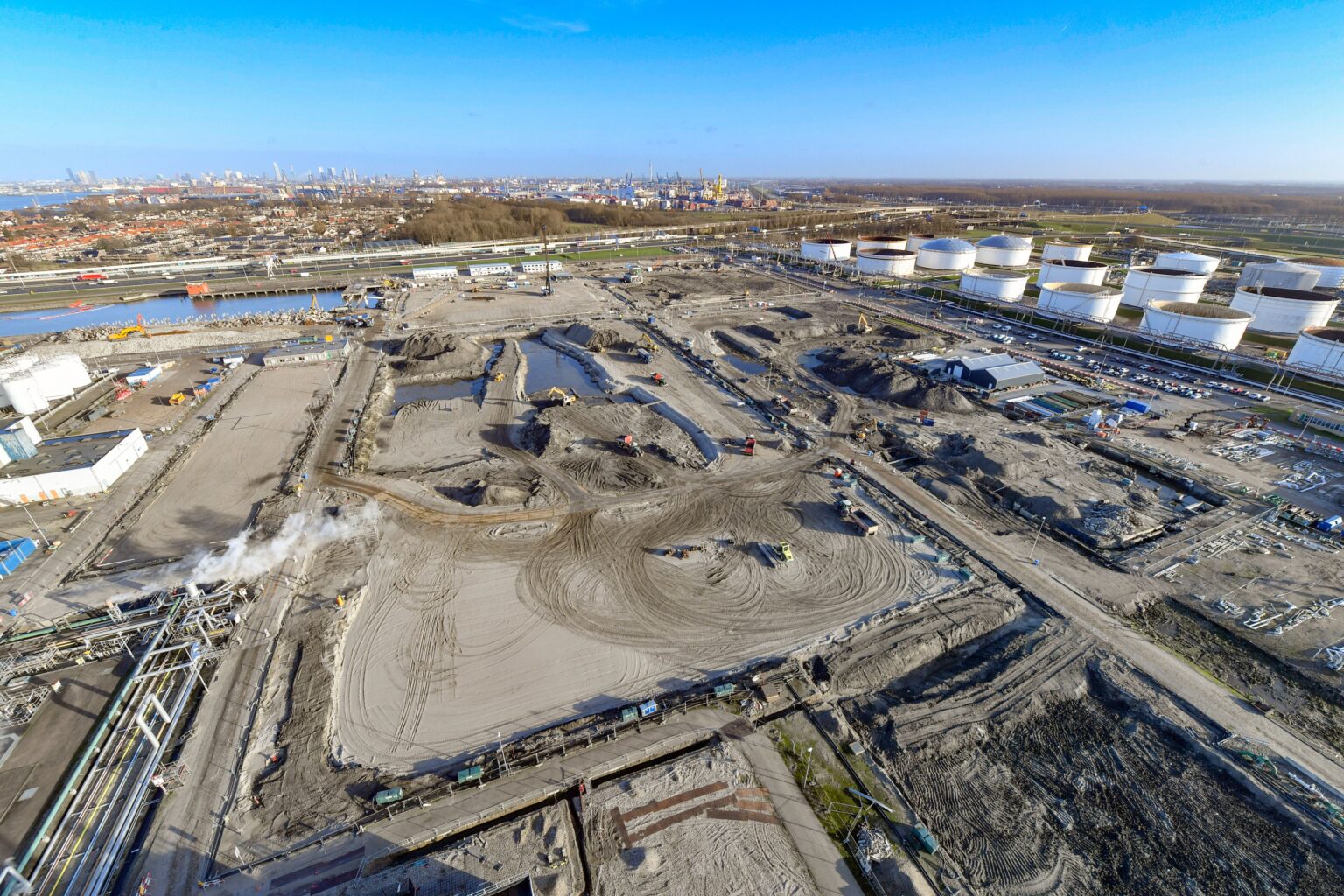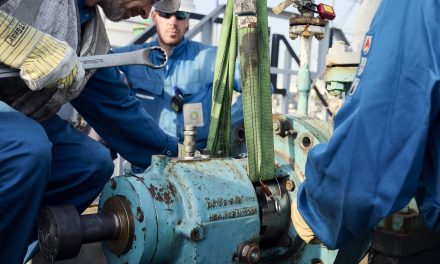
Heien voor biobrandstoffenfabriek Shell

Foto: Shell
Deze maand is het heien begonnen voor de bouw van de biobrandstoffenfabriek in Pernis. Dit zal tot het eind van 2022 duren.
“Het wordt een flinke klus”, stelt Jos van Winsen, directeur Shell Energy and Chemicals Park Rotterdam, op LinkedIn over de heiwerkzaamheden. “Eind 2022 zijn we volgens planning met het plaatsen van de vijfduizend palen. We houden natuurlijk rekening met de omgeving door alleen overdag en door de week palen in te slaan, en sommige draaien we de grond in.”
Heien
Afgelopen najaar startten de bouwwerkzaamheden voor de biobrandstoffenfabriek, die op het terrein van Shell Pernis wordt gebouwd en de naam ‘HEFA’ heeft gekregen. De biobrandstoffenfabriek krijgt een capaciteit van 820.000 ton per jaar. Het wordt de grootste fabriek in zijn soort voor de productie van duurzame vliegtuigbrandstof en hernieuwbare diesel. Naar verwachting gaat de plant in 2024 in bedrijf. De brandstoffen worden gemaakt uit afval, zoals gebruikt frituurvet, dierlijk vet en andere industriële en agrarische restproducten.
Zie ook: Compressoren voor biobrandstoffenrabriek Shell
English translation
Pile driving for Shell biofuel factory
This week the pile driving started for the construction of the biofuel plant in Pernis. This will take until the end of 2022.
“It’s going to be a big job”, Jos van Winsen, director of Shell Energy and Chemicals Park Rotterdam, on LinkedIn about the pile driving. “At the end of 2022 we are on schedule with the placement of the five thousand piles. Of course, we take the surroundings into account by only driving piles during the day and during the week, and some we turn into the ground.”
‘HEFA’
Last autumn, construction work started on the biofuel plant, which is being built on the Shell Pernis site and named ‘HEFA’. The biofuel plant will have a capacity of 820,000 tonnes per year. It will be the largest plant of its kind for the production of sustainable aviation fuel and renewable diesel. The plant is expected to come on stream in 2024. The fuels are made from waste, such as used cooking oil, animal fat and other industrial and agricultural residues.









